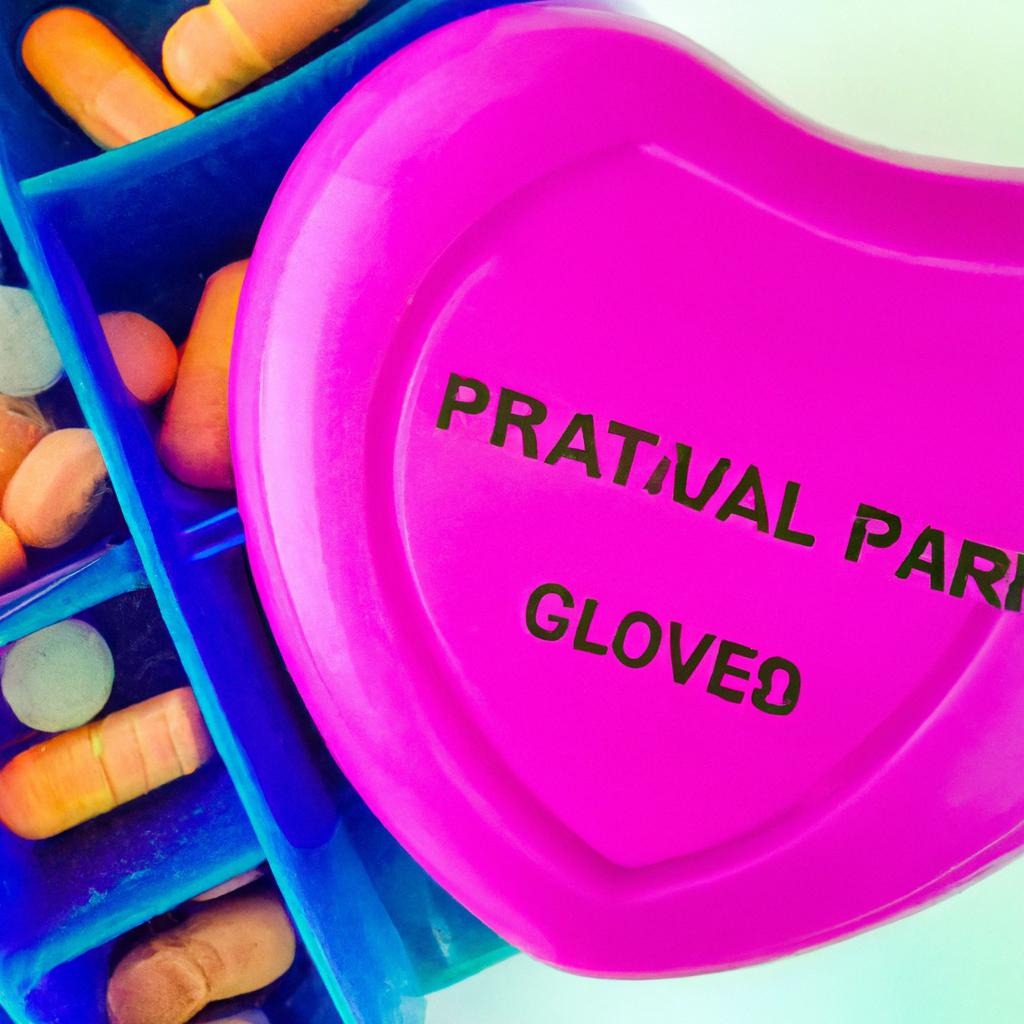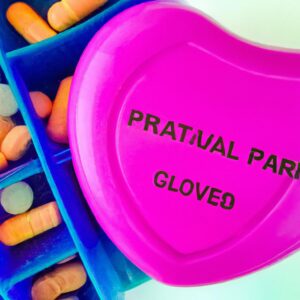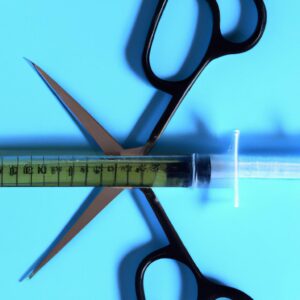Prevent Heart Disease: Learn How to Keep Your Heart Healthy

Introduction: Why is Heart Health Important?
The importance of heart health is something that can’t be underestimated. Heart health refers to keeping your heart and blood vessels healthy so that you can enjoy a full, active and healthy life. Poor heart health can lead to life-threatening cardiovascular diseases, like heart attack, stroke and high blood pressure.
It’s important to recognize the risk factors associated with poor heart health and take action to protect your heart. With some simple lifestyle changes, you can ensure that your heart remains healthy for years to come.
Risk Factors
Cardiovascular diseases can affect anyone, regardless of age or gender. But certain factors can increase your risk for developing a heart or blood vessel disease. These risk factors include:
- Age: The risk of having a heart attack increases after the age of 45 for men and 55 for women.
- Lifestyle Choices: Unhealthy lifestyle habits such as smoking, drinking too much alcohol, and not exercising can all lead to an increased risk of cardiovascular disease.
- Family History: If a family member has had a heart attack or stroke, you may be at a higher risk.
- Medical Conditions: High blood pressure, diabetes, and high cholesterol levels can put you more at risk of developing a heart or blood vessel condition.
Eating Healthy
A nutritious diet is essential for maintaining heart health and reducing the risk of cardiovascular diseases. Eating a variety of healthful foods in reasonable amounts can help to regulate cholesterol levels, reduce blood pressure and promote overall well-being. Here are some examples of specific healthful foods to include in your diet:
- Leafy green vegetables like spinach, kale and collard greens
- Fresh fruits such as oranges, strawberries, apples and bananas
- Healthy fats like avocados, nuts and seeds
- Whole grains like quinoa, oatmeal and brown rice
- Lean proteins like fish, poultry and beans
Exercise: The Power of Movement
Regular physical activity is an important part of living a healthy lifestyle and avoiding cardiovascular diseases. Exercise helps to strengthen the heart, boost circulation, and reduce blood pressure, among many other benefits. Even something as simple as a brisk walk can be incredibly beneficial for our hearts.
Making exercise part of your daily routine doesn’t have to feel like a chore. Here are some tips to get moving:
- Take the stairs instead of the elevator or escalator.
- Go for a walk around the block or through the park during lunch breaks.
- Join a recreational sports team with friends or colleagues.
- Make time for recreational activities that you enjoy, such as swimming or dancing.
- Don’t forget to take regular breaks throughout the day to get up and move around.
By making exercise part of your daily life, you can help to reduce the risk of developing cardiovascular diseases and live a healthier, longer life.
Stress Management
While stress can be a normal part of life, it is important to recognize that too much stress can have serious implications for your heart health. Stress can cause elevated blood pressure and levels of cortisol and adrenaline in the body, all of which can contribute to the risk of developing cardiovascular disease.
There are many helpful ways to reduce and manage stress. These include:
- Making time to relax – Take some time every day to do something enjoyable like reading, listening to music or spending time with friends.
- Exercising regularly – Exercise releases endorphins which can help you cope better with stress.
- Talking with a counselor – Talking through issues can help to reduce stress and give you better tools to manage your emotions.
- Eating a healthy, balanced diet – A nutritious diet can help to boost energy levels, reduce anxiety and regulate mood.
It’s important to remember that everyone will have their own coping strategies for managing stress. It is essential to find things that work for you, whether it’s taking a yoga class, dancing, meditating or playing a musical instrument.
Warning Signs of a Heart Attack or Stroke
It is important to be aware of the warning signs of a heart attack or stroke. Both can have devastating consequences if not treated quickly. Common warning signs of a heart attack include chest pain, shortness of breath, nausea and lightheadedness. Warning signs of a stroke include: sudden numbness in the body, confusion, difficulty speaking, and vision changes. If you experience any of these symptoms, seek medical attention immediately.
Following a diagnosis of a heart condition or stroke, it is essential to follow your doctor’s advice and take any prescribed medications. It is also important to make necessary lifestyle changes to reduce your risk of future health problems, such as eating a healthy diet, exercising regularly and reducing stress.
Medications
Cardiovascular diseases can be managed with the help of medications. Many people take medicines to reduce high blood pressure, cholesterol levels and other factors that can contribute to heart disease. Aspirin, statins and beta-blockers are three of the most common medications prescribed for cardiovascular health.
Aspirin is an anti-inflammatory medication that helps to prevent blood clots from forming and increasing risk of heart attack and stroke. Statins are drugs that work to lower cholesterol levels and improve overall heart health. Beta-blockers help to reduce blood pressure by blocking certain hormones that cause it to rise. It is important to talk to your doctor about which medication may be right for you.
Medical Devices for Heart Conditions
Certain patients with heart conditions may require the use of medical devices to help manage their condition. This may include pacemakers, defibrillators and various other devices implanted or worn on the body.
Pacemakers are small electrical devices placed in the chest to help with irregular heartbeat, or reduce the risk of a heart attack or stroke. They essentially act as an artificial pacemaker and send electrical signals to regulate the heartbeat.
Defibrillators are instruments that detect irregular heart rhythms and can help shock the heart back into normal rhythm during certain types of cardiac arrest. These devices can be placed inside the chest, but some are also available that can be worn externally.
There are other medical devices used to treat various heart conditions, depending on the severity of the individual’s health. These may include valve replacements, implantable cardioverter defibrillators, coronary stents and cardiac ablation.
Although these devices and procedures are important for treating certain heart conditions, it is important to remember that making lifestyle changes such as eating healthier, exercising and managing stress are essential for maintaining a healthy heart.
Surgery
People with more severe or complex heart problems may need surgery. Depending on the condition, a number of surgical procedures are available to treat heart diseases. Here is an overview of some of the most common types of surgeries.
Coronary Artery Bypass Graft
This surgery is used to open blocked arteries so that blood can get to the heart more easily. During the procedure, a healthy artery or vein from another part of the body is transplanted and connected to the blocked coronary artery, bypassing the blockage. This increases the amount of blood that can reach the heart, reducing the symptoms of ischemia.
Valvuloplasty
Valvuloplasty is a procedure that can be used to repair diseased or damaged heart valves. During the procedure, the surgeon will open up the affected heart valve, clean it and restore its normal shape. This helps to improve the blood flow through the valve, which can relieve symptoms like shortness of breath.
Pacemakers
Pacemakers are devices that are implanted into the chest and help to maintain a regular heartbeat. They send electrical pulses that stimulate the heart to beat at a steady rate. The device can be set to respond to different speeds and rhythms according to the patient’s needs.
Defibrillators
Defibrillators are devices that work by delivering an electric shock to the heart to restore the normal rhythm. These devices are often used in emergency situations when the patient’s heart has stopped beating. The shock from the defibrillator helps to restore the normal rhythm, allowing the heart to start pumping again.
Recovery
Recovery times vary depending on the type of surgery that was done. Generally, patients can return home within a few days but will still need to take it easy for several weeks as they heal. The doctor will provide specific instructions about activities that should be avoided during the recovery period.
Prevention Tips
Preventing cardiovascular disease can be done in many different ways. You can lower your risk through lifestyle changes, such as eating a healthy diet, exercising regularly, and managing stress. Following these prevention tips will help to keep your heart healthy and strong:
- Eat a heart-healthy diet that includes plenty of fruits and vegetables.
- Engage in at least 30 minutes of physical activity each day.
- Maintain a healthy weight.
- Avoid tobacco use or second-hand smoke.
- Limit alcohol consumption.
- Manage stress with relaxation techniques like yoga and meditation.
These simple prevention tips can go a long way in preserving your heart health.
Living with Cardiovascular Disease
Living with a cardiovascular disease can be difficult, but there are steps that can be taken to manage it and improve quality of life. Here are some tips to help you take control of your health.
- Follow your doctor’s instructions for medications and lifestyle changes.
- Eat a balanced diet that is lower in saturated fat, sodium, and processed foods, and higher in fruits, vegetables, and whole grains.
- Exercise regularly; this can help maintain a healthy weight and reduce the risk of developing other health conditions.
- Check your blood pressure regularly at home.
- Monitor your cholesterol levels and make sure to get regular checkups with your doctor.
- If you smoke, quit. Smoking increases your risk of developing heart diseases.
- Lower your stress levels. Try meditation, relaxation exercises, or taking up a hobby to help reduce stress levels.
- Know the signs of a heart attack or stroke and call 911 if you experience any of these warning signs.
- Seek support from friends and family, or look for support groups in your area.
By following these tips, you can improve your heart health and ultimately have a better quality of life.
Conclusion
Heart health is a critical aspect to living a healthy and productive life. Making healthy lifestyle choices can help reduce the risk of developing cardiovascular diseases, and it’s never too late to make changes for the better. Everyone should be aware of the risk factors, warning signs, and medical treatments available, and strive to live a heart-healthy life.
No one should feel like they are alone in dealing with heart conditions – many patients have made successful recoveries and continue to lead happy and active lives. It is important to have a support system to talk to and to always keep up with treatments and medical advice. By doing so, we can all help ensure that our hearts remain healthy and strong.
comments: 0







